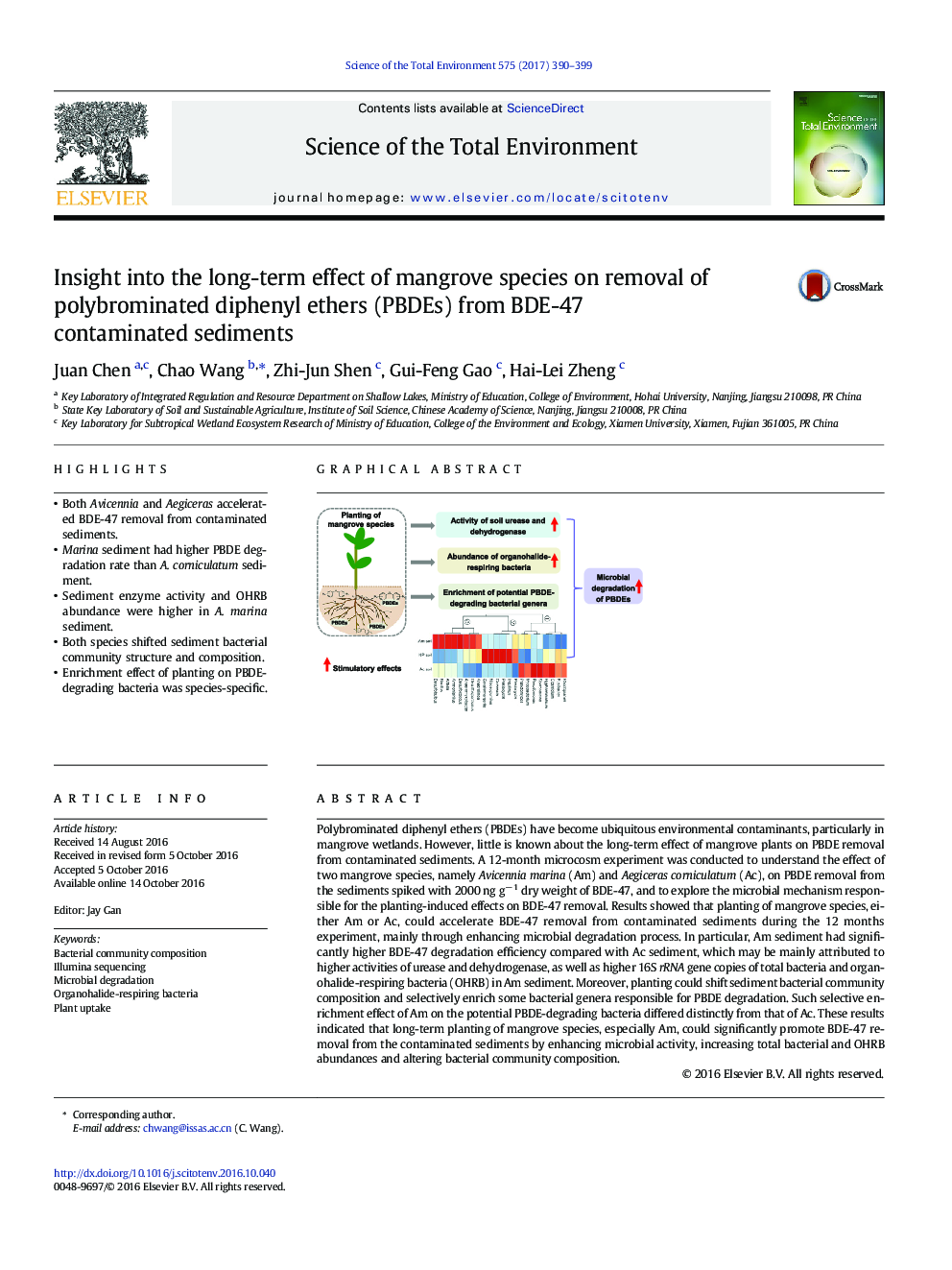| کد مقاله | کد نشریه | سال انتشار | مقاله انگلیسی | نسخه تمام متن |
|---|---|---|---|---|
| 6319482 | 1619716 | 2017 | 10 صفحه PDF | دانلود رایگان |

- Both Avicennia and Aegiceras accelerated BDE-47 removal from contaminated sediments.
- Marina sediment had higher PBDE degradation rate than A. corniculatum sediment.
- Sediment enzyme activity and OHRB abundance were higher in A. marina sediment.
- Both species shifted sediment bacterial community structure and composition.
- Enrichment effect of planting on PBDE-degrading bacteria was species-specific.
Polybrominated diphenyl ethers (PBDEs) have become ubiquitous environmental contaminants, particularly in mangrove wetlands. However, little is known about the long-term effect of mangrove plants on PBDE removal from contaminated sediments. A 12-month microcosm experiment was conducted to understand the effect of two mangrove species, namely Avicennia marina (Am) and Aegiceras corniculatum (Ac), on PBDE removal from the sediments spiked with 2000 ng gâ 1 dry weight of BDE-47, and to explore the microbial mechanism responsible for the planting-induced effects on BDE-47 removal. Results showed that planting of mangrove species, either Am or Ac, could accelerate BDE-47 removal from contaminated sediments during the 12 months experiment, mainly through enhancing microbial degradation process. In particular, Am sediment had significantly higher BDE-47 degradation efficiency compared with Ac sediment, which may be mainly attributed to higher activities of urease and dehydrogenase, as well as higher 16S rRNA gene copies of total bacteria and organohalide-respiring bacteria (OHRB) in Am sediment. Moreover, planting could shift sediment bacterial community composition and selectively enrich some bacterial genera responsible for PBDE degradation. Such selective enrichment effect of Am on the potential PBDE-degrading bacteria differed distinctly from that of Ac. These results indicated that long-term planting of mangrove species, especially Am, could significantly promote BDE-47 removal from the contaminated sediments by enhancing microbial activity, increasing total bacterial and OHRB abundances and altering bacterial community composition.
203
Journal: Science of The Total Environment - Volume 575, 1 January 2017, Pages 390-399